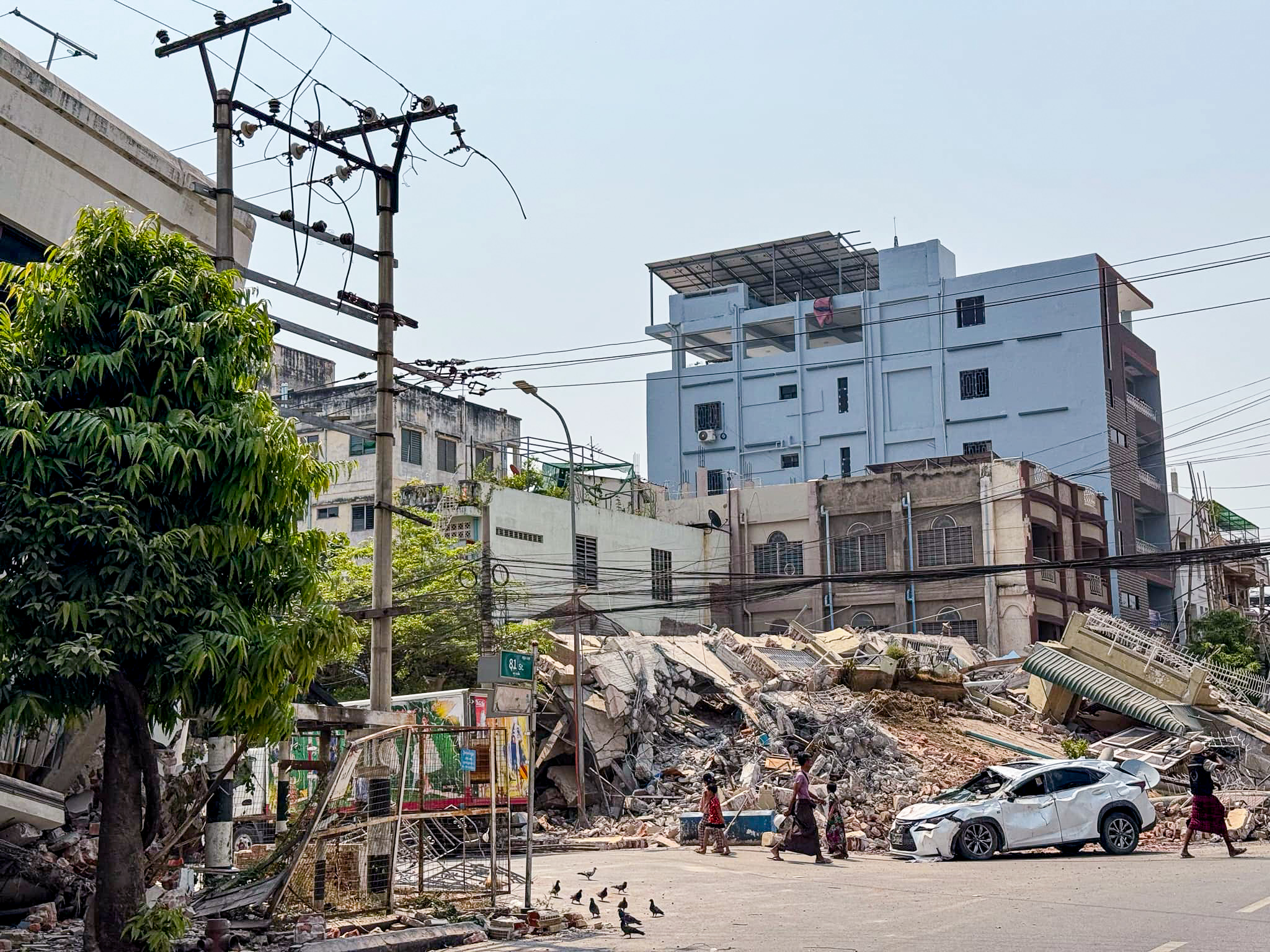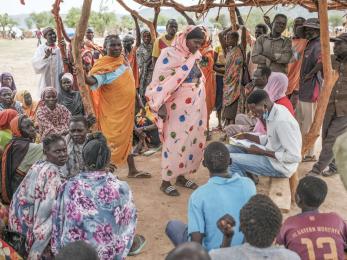"I was working Monday to Monday and still it wasn't enough": Becoming a Venezuelan refugee

Flour and water were all they had left for dinner.
That’s the night Jose knew his family of five had to leave.
Jose and his wife Ana Maria had one flour arepa for both of them to eat. “I remember looking at her eating it, and just saw her crying, the tears just falling from her eyes,” he says.
But the slide from enough to not enough didn’t happen overnight.
The human cost of the Venezuela crisis
In his home country of Venezuela, Jose specialised in home remodels. He worked a normal 8 a.m. to 5 p.m. job five days a week. He made enough money to get by. He and his family owned their own house. His brother lived down the street and their extended family was close by. The oldest kids were in school, and overall, they were happy.
“What I earned gave us a life, food, supplies, a home. But then the inflation began to rise and I felt the weight of it all,” Jose recalls.
His work dwindled and he started picking up odd jobs and increasing his hours. “I was frustrated because it wasn’t enough. I was working Monday to Monday and still, it wasn’t enough.” Inflation continued to rise, along with the cost of food, making it impossible to support his family. No matter what Jose got paid, the next day food would be even more expensive. This went on for months until finally, it became unbearable.
“I always found food for the children,” he says proudly, as he recalls the night that made him decide to leave Venezuela. “But there was a point where we [me and my wife] were drinking water for dinner.”
Their life in Venezuela was no longer sustainable — it was time to find another means of providing for his family.
Leaving home behind

Months later, Jose and his entire family live in a small, one-room shack in the back of a noisy car repair garage in Colombia. They earn money selling small goods and mobile phone minutes on the busy street in front of their house, but the income is not enough. Jose worries about his children’s future. Especially their education.
Jose feared for the future of his country. Things in Venezuela were extremely difficult beyond his own family, too. Jose looked around at his neighbors and they were starving. Stores were running out of food. Hospitals were running out of medicine. People were paying for items in bricks of bolívares (currency in Venezuela.)
“I felt powerless,” Jose remembers as he describes how his home had changed. So he made the incredibly difficult decision to leave his family, and his home, and go to Colombia.
“I took buses and four different vehicles to get here [Colombia]. When I got here, I felt so far away from home. There was a great sadness in my heart to be so far away.” In Colombia, he met up with a friend and was able to find some short-term work. He lived in three places before he found a place for his family and had earned enough money so they could join him.
“It’s important to realise migrating isn’t easy,” Jose says. It was the furthest away from his family he’d ever been. His wife was pregnant when he left and he kept hearing reports about how the situation was worsening in Venezuela. Finally, he traveled back home to Venezuela to get his family. He told his kids to pack a small bag of clothes. He locked the door of his beloved home and left, hoping to return one day soon.
Starting over in Colombia
Back in Venezuela, his children went to school regularly. In Colombia, he’s struggling to afford the cost of the uniforms to send all of his children to school, so only some of them go.
The choice between food and education is a difficult one, and not a decision Jose takes lightly. A few months ago, he actually considered returning to Venezuela just so his children wouldn’t miss another year of school. But the problems back home remain the same — he still wouldn’t have enough to buy food.

Today, they are a family of six. Ana Maria had a baby, two months premature, just weeks after leaving Venezuela.
Mercy Corps is distributing emergency cash to help vulnerable Venezuelans in Colombia meet their urgent needs, including food, medicine and shelter.
With the cash Jose and Ana Maria received from Mercy Corps, they were able to pay for part of the birth of their new baby. They were also able to purchase a fan to help keep the baby cool on hot days.
“It was like the money fell from heaven,” Jose says. “I don’t know how we would have paid for the birth without Mercy Corps.”
Jose’s extended family and their support system still live in Venezuela. He frequently has to return to pick up his mother and bring her in for medical treatment in Colombia. She can’t get the treatment she needs in Venezuela.
When Jose visits, his extended family expects him to bring them food — rice, flour, whatever he can afford. He can’t really afford to bring food to his extended family, but he knows he has to because they are relying on him to eat. So every time he gets paid, he saves a single coin to buy them food for his next visit.
Jose and his family are hopeful they can return to Venezuela soon. It is their home and it’s where they see their future.
The challenges of what’s to come

Colombia has become a place of refuge for Venezuelan migrants and refugees. Mercy Corps is working in Colombia’s poorest areas to provide resources to newly arrived Venezuelan migrants. Their needs are great. Many arrive malnourished and in need of medical care. Like Jose and Ana Maria, they are also searching for food and work.
Colombia is making accommodations for Venezuelans. But in many host communities, resources are strained and xenophobia is growing. The majority of local governments in Colombia don’t have the resources to provide aid to migrants, so many of the new arrivals are looking to organisations like Mercy Corps for help.
Unfortunately, it’s likely that we are still in the early stages of this Venezuelan crisis and that it will continue to escalate. Based on Mercy Corps' 40 years of experience, we know that if we don’t get ahead of the humanitarian needs, things will worsen for the vulnerable families caught in the middle. We are currently expanding our existing aid operations in Colombia to meet the urgent needs of Venezuelan refugees and the Colombian communities hosting them.


